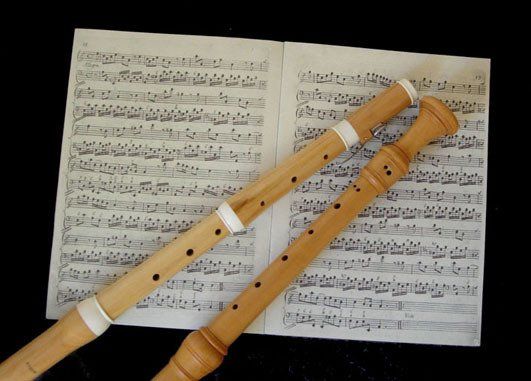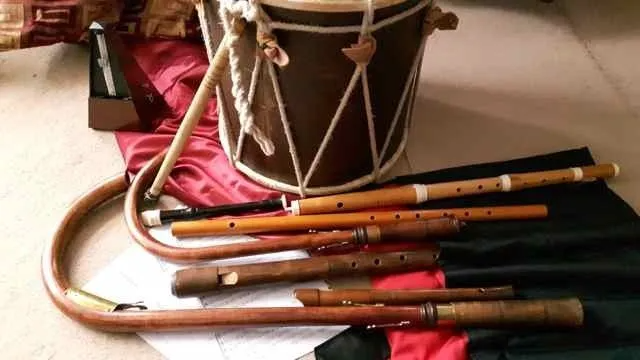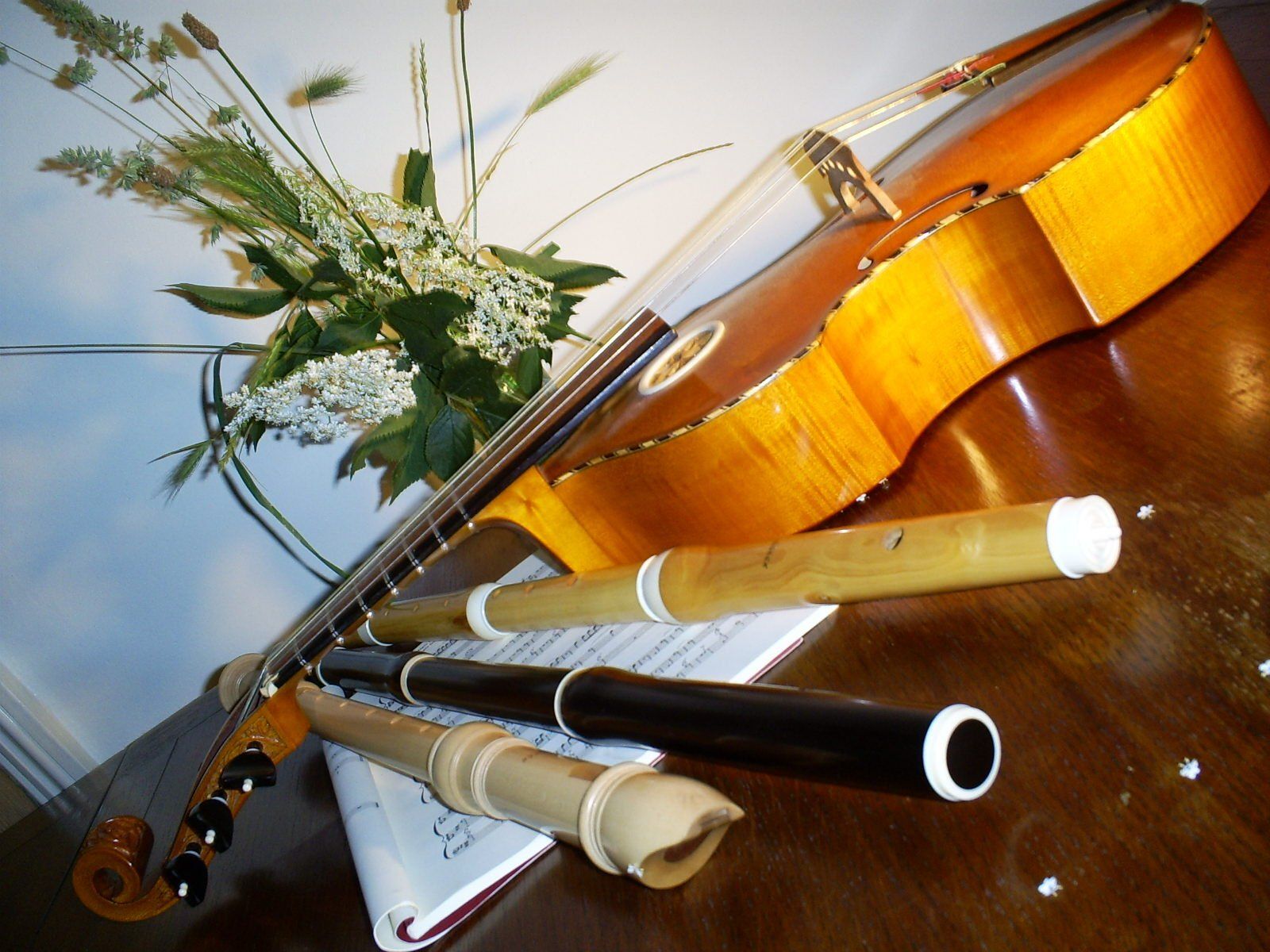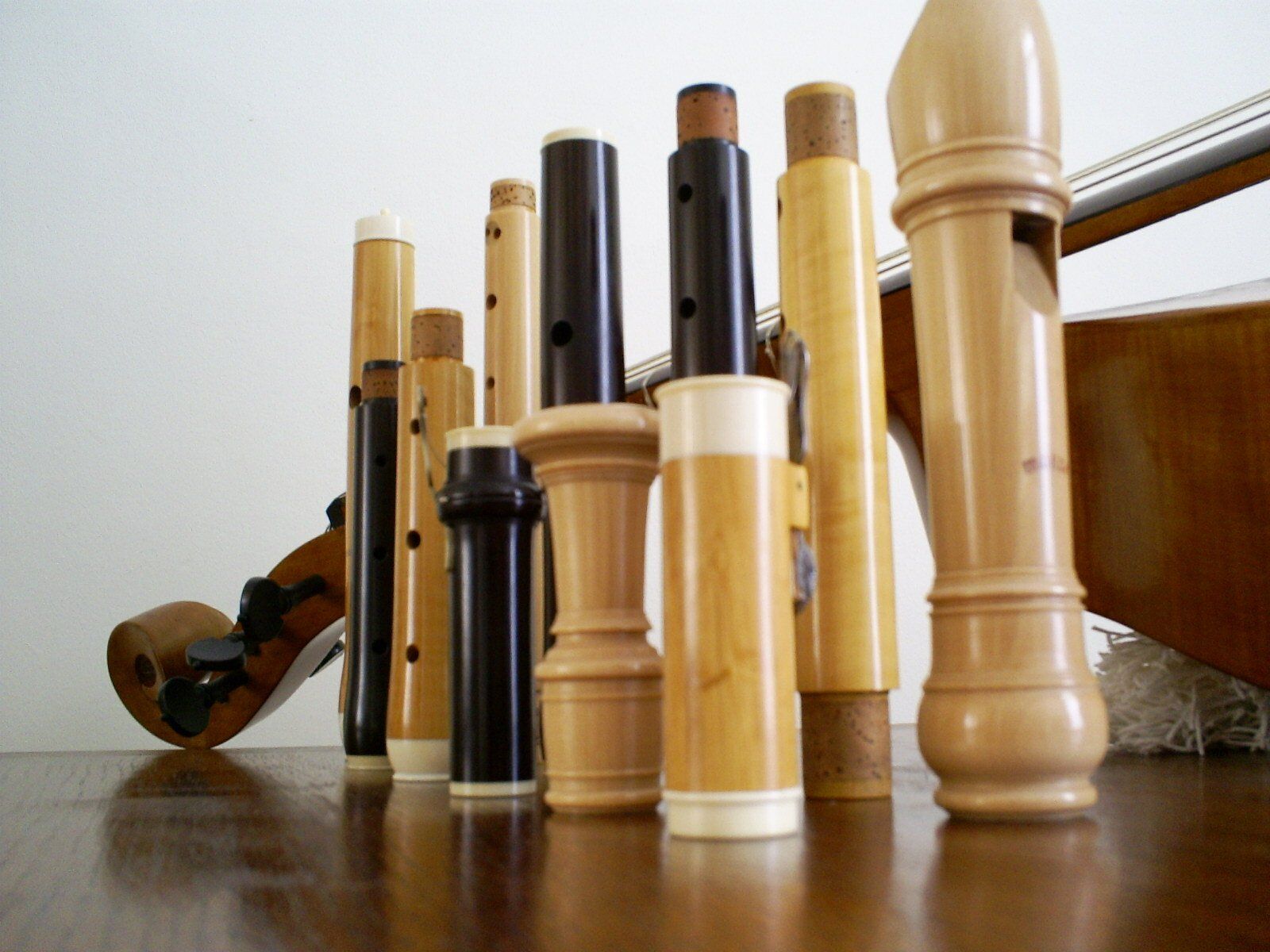Sixteen Eighty Five
Who are we?
The group Sixteen Eighty Five is based in Lincoln and performs in Lincolnshire and wider afield.
We are committed to presenting high quality performances of music from Bach and Handel's time, but we are
also interested in and influenced by music from the times before this.
We take an active interest in performing our music in a style which would be recognised by the composers
and the audiences of the time. This includes playing without vibrato and decorating the music appropriately.
As well as playing in concerts we are available for weddings, corporate events and similar occasions.
Current members are
Christine Hasman:
Recorders, crumhorns, harpsichord.
Christine is a church administrator
and freelance genealogist who sings with Lincoln Chorale
and among other musical activities, plays organ at Winthorpe's parish church.
Helen Mason (Director)
Recorders, crumhorns, flutes, medieval fiddle and viol.
Helen was formerly one of the music librarians at
Trinity Laban Conservatoire of Music and Dance in London.
She is now also a member of the City of Lincoln Waites and assistant conductor of the Lincoln Renaissance Band.
Jane Stubbs:
Recorders, crumhorns, viols and harpsichord.
Formerly Head of Music at Castle Academy in Lincoln
and peripatetic piano and woodwind teacher with Lincolnshire Music Service, Jane
sings with Lincoln Chorale and The Hungate Singers and directs the recorder group "LGRG".
Guest players
Sixteen Eighty Five is delighted to welcome guest players from time to time including:
Wendy Leonard (soprano).
Wendy is a member of Lincoln Chorale, Hungate Singers, and physiotherapist at Lincoln County Hospital, a regular guest soloist with Sixteen Eighty Five.
Carole Ashcroft, (percussion)
Among other activities, Carole is a member of the Lincoln recorder ensemble "LGRG".
Victoria Carter (recorders)
Victoria currently works with Lincolshire's Music Service, teaching woodwind in schools.
Richard Lindsay (Counter tenor, recorders)
Among other things, Richard is a lay clerk with the Lincoln Cathedral Choir and the main conductor of the Lincoln Renaissance Band.
What music do we play?
The main portion of our repertoire is based in the Baroque era drawn from between 1640 and 1760. Sonatas, mainly trio sonatas (accompanied duets) form the mainstay, with solo and ensemble woodwind music making up much of the rest. When baroque composers finished and published a piece of music they didn't feel that that was it! The performers were expected to bring a great deal of original interpretation to the pieces, in terms of dynamic changes, phrasing and especially decoration. We would go so far as to say that a performer playing everything written down, exactly as it appears on the page, is playing the music wrongly.
We also include typical renaissance pieces ranging from jolly dance tunes to more complex interwoven fantasias. Medieval music also gets a look in too, especially if we are lucky enough to play in a suitably atmospheric setting. In 2023 we were delighted to join in the celebrations of the 400th centenaries of William Byrd (former Lincoln Cathedral organist!), Thomas Weelkes and the 500th anniversary of William Cornyshe by including some of their works in our concerts.
Lincoln's 2026 early music workshop is on Saturday May 2nd
click here for details: https://memf.org.uk/event/workshop-for-voices-with-greg-skidmore-in-lincoln-on-2nd-may-2026/
Our Instruments
Recorders in various sizes form our main woodwind instruments. When Vivaldi or any other baroque composer wrote a piece for "flute" the instrument intended was the recorder. At this time the "sideways" flute was known as a "traverso".
We do also use transverse flutes copied from baroque instruments - wooden and with only one key.
Our harpsichord, on the other hand, is a thoroughly modern instrument. This means that it is always in tune, can be set to offer a variety of pitches and temperaments and can double as a lovely sounding chamber organ.
And then there are our other instruments - medieval fiddle, lute, viols, crumhorns, symphonie and percussion...more about them later.
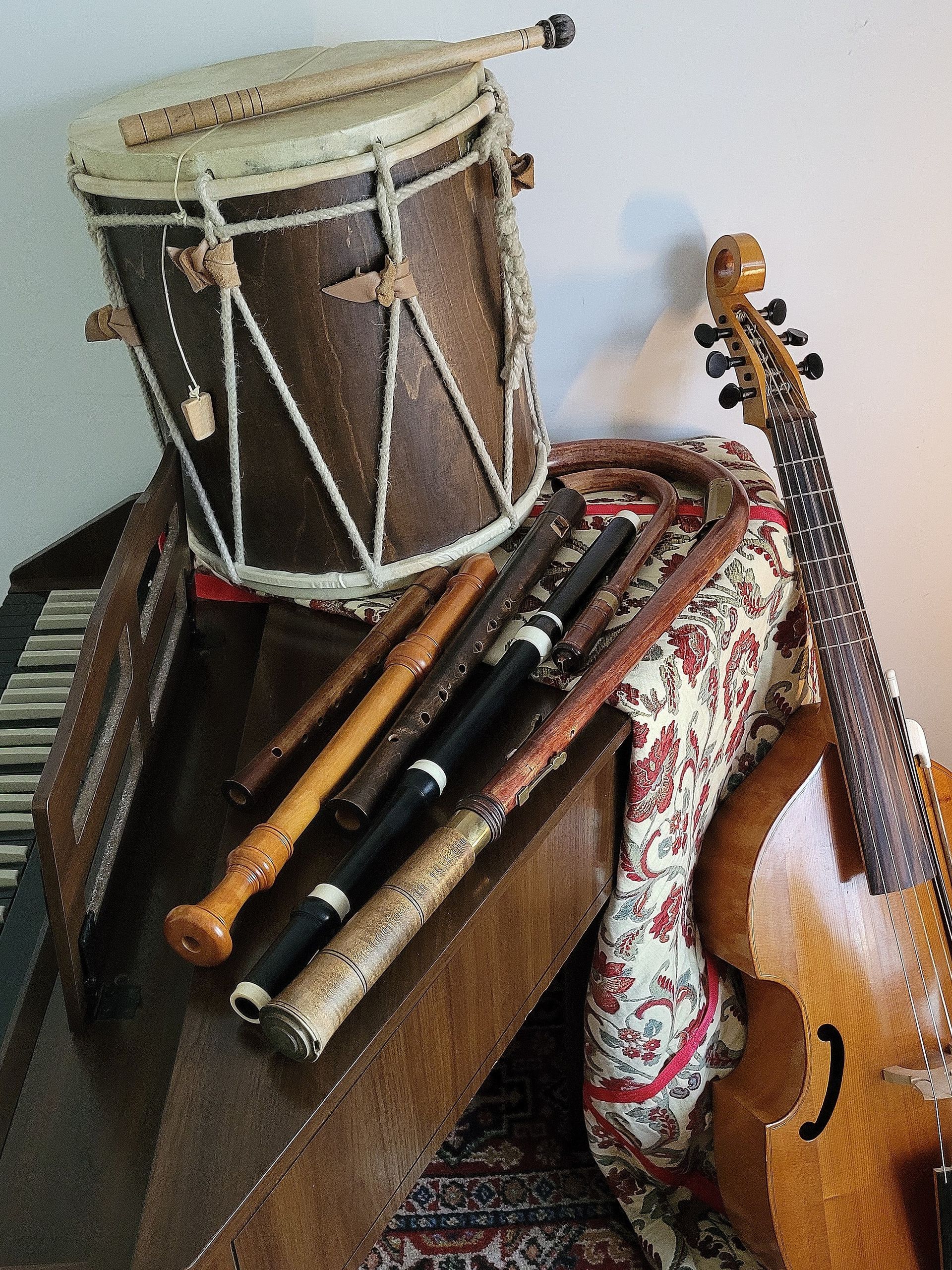
Sixteen Eighty Five, with Victoria Carter @ Southwell - crumhorns
What do we sound like?
Sixteen Eighty Five, Victoria Carter - Southwell playing Innsbruck
Videos?
and we're on YouTube!
Sixteen Eighty Five, with Richard Lindsay @ St Nicholas', Lincoln, 2023 - Byrd's Rejoice (excerpt)

G A L L E R Y
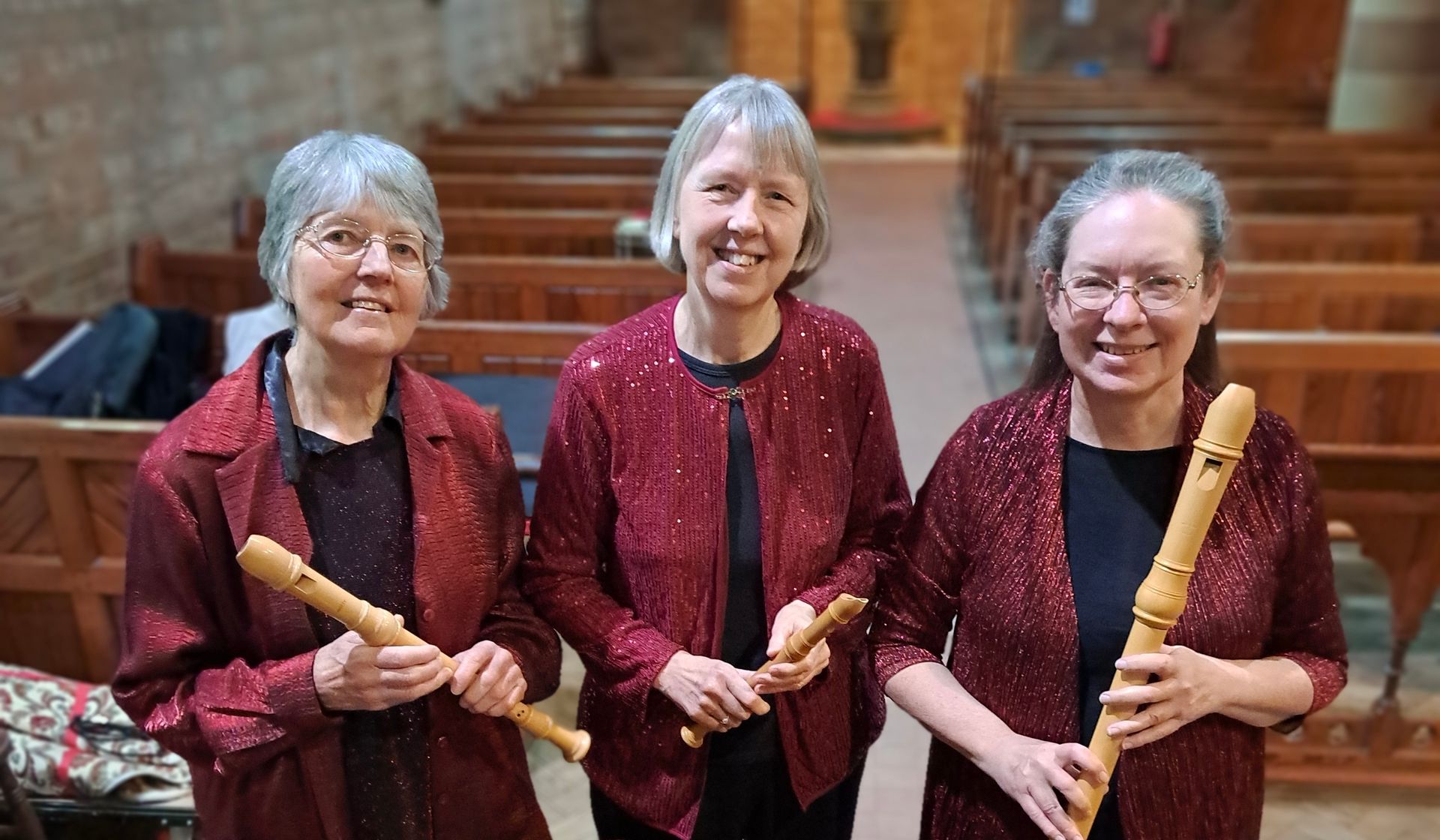
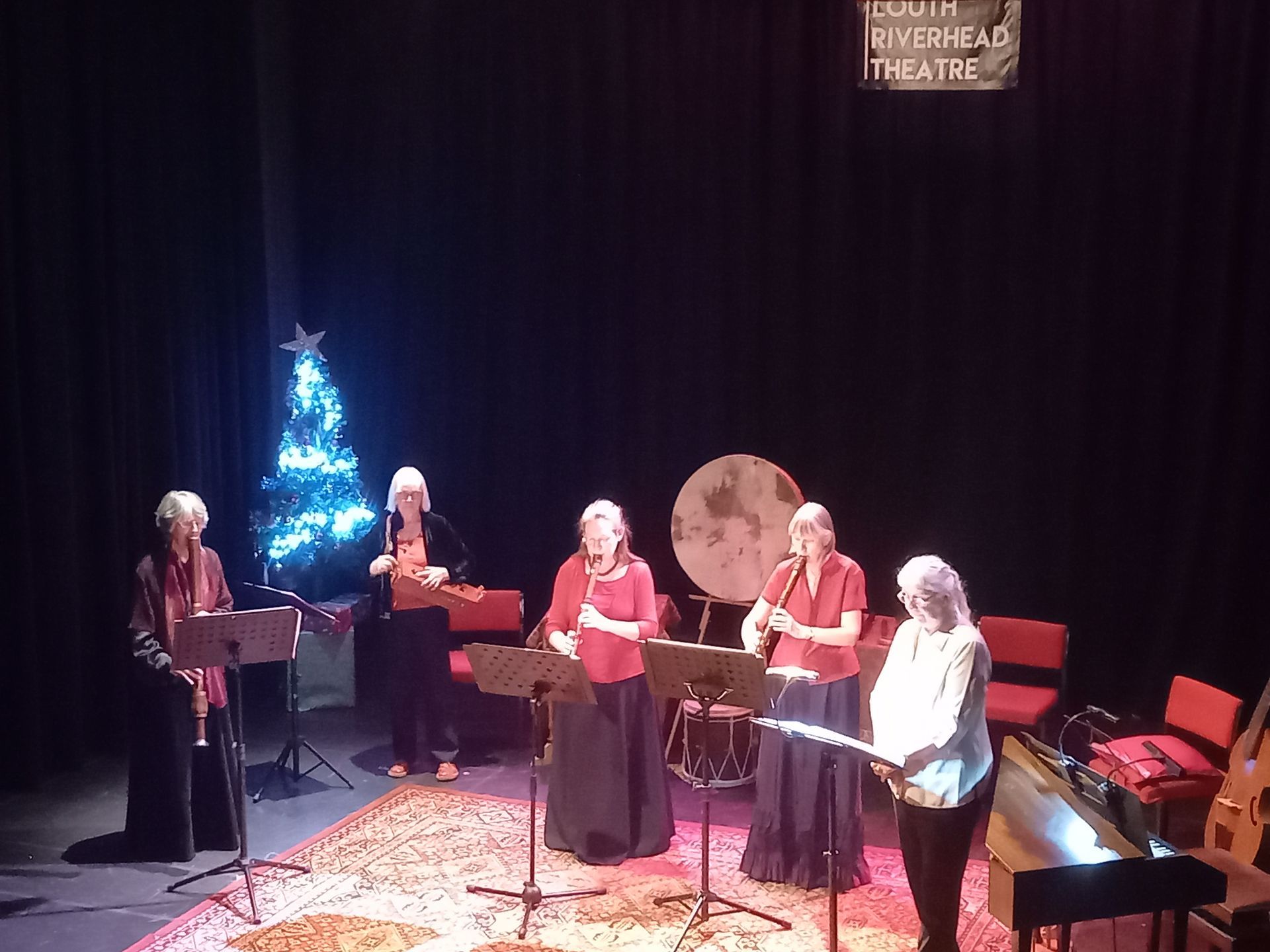
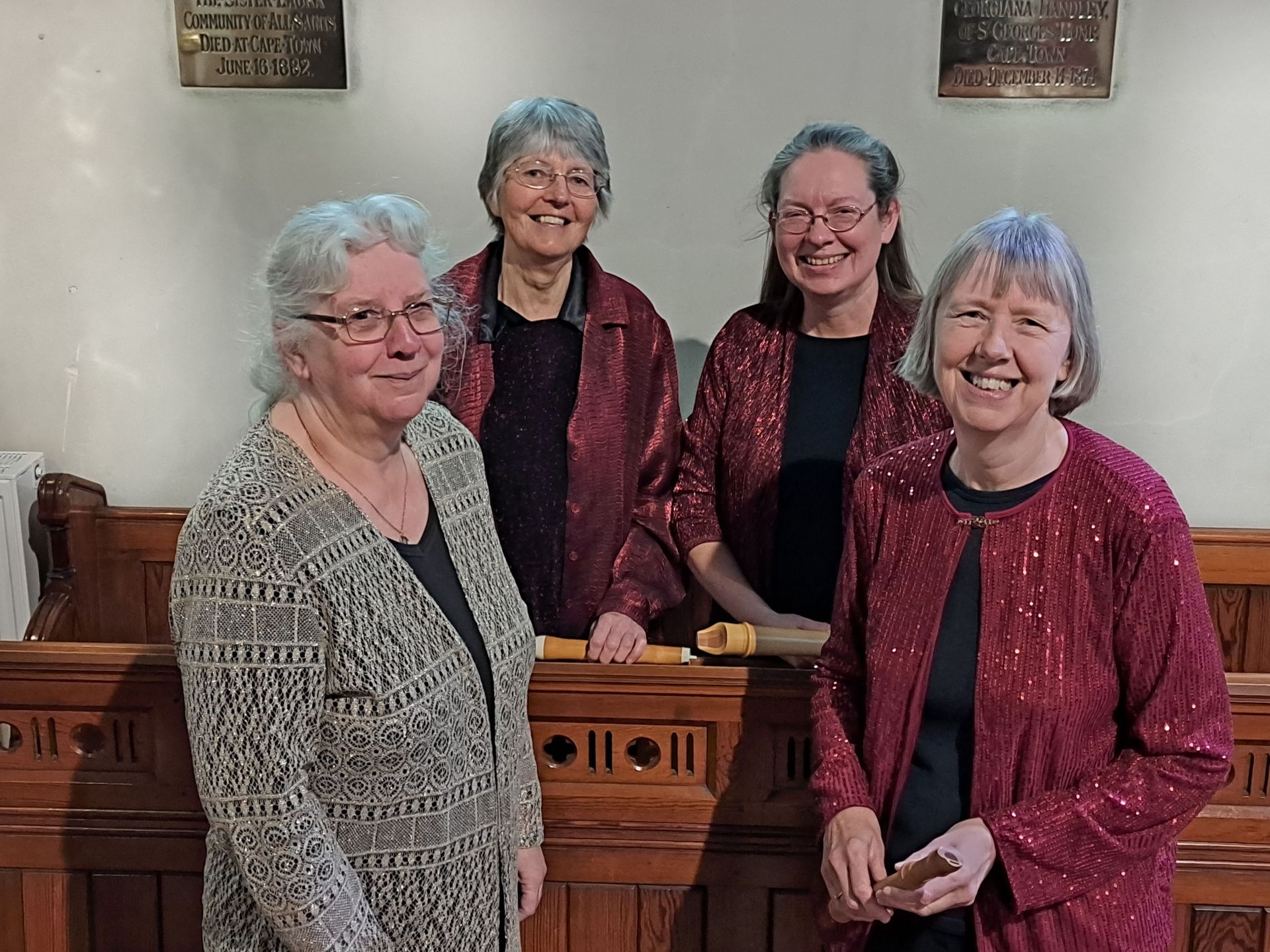
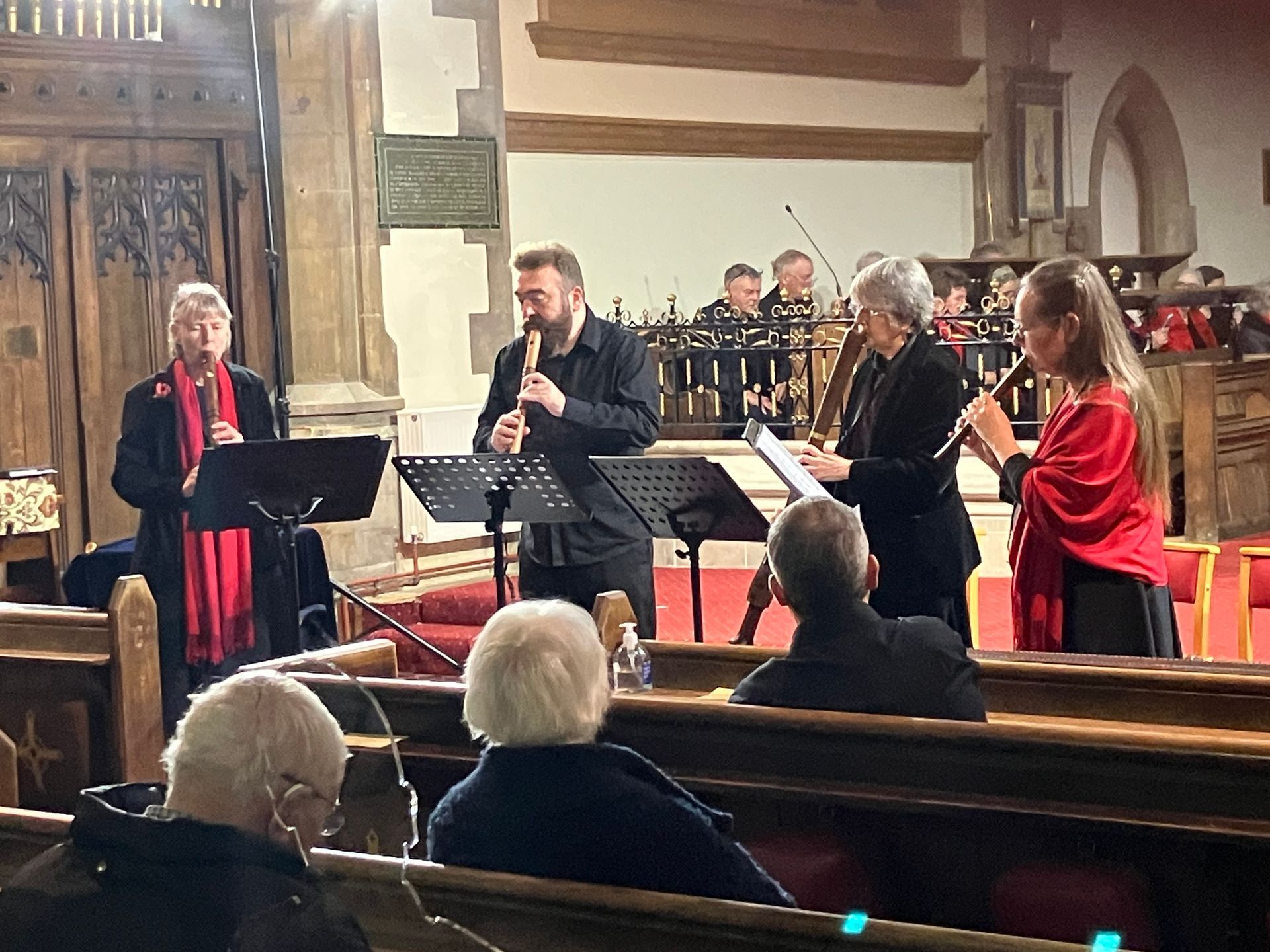
What was happening in 1685?
Here are some more things we've discovered happened in 1685...
Yes!, Johann Sebastian Bach, Georg Frideric Handel and Domenico Scarlatti were born.
Johann Sebastian was born on 21st March 1685 in Eisenach into a huge family of professional musicians. He died on 28th July 1750 in Leipzig from complications following eye surgery by the charlatan English eye surgeon, John Taylor. During his life, Bach tried to meet up with Handel
Georg Frideric was baptisted on 23 February 1685 in Halle. His father was a barber-surgeon. He died on 14 April 1759 in London, having been blind since around 1752. He too had had less than successful eye surgery by John Taylor. Handel learned much from Alessandro Scarlatti's (Domenico's father) writing for solo voice, and from Corelli's instrumental writing.
Domenico Scarlatti was born in Naples on 26 October 1685 into a musical family - father and uncle were professional musicians. He died in Madrid on 23 July 1757. An interesting story links him with Handel - they had a competition at Cardinal Ottoboni's house in Naples. Scarlatti apparently had the edge as harpsichordist, and Handel as organinst. Latterly Scarlatti was known to cross himself when speaking of Handel.
Music related things in 1685
Ignazio Albertini (composer and violinist) was murdered on 22 September.
Stradivarius (1644 - 1737) was building his renowned violins.
Marin Marais, composer and viol player, joined the French Royal Orchestra.
Recorder maker Peter Bressan was born in France. He worked mainly in London, where he made some of the most prized instruments. He is regarded by many as being the ‘father’ of English recorder making.
Society - some historical events in 1685
Coronation of James II took place on 23 April, 1685 - read all about it on the National Archives page - https://blog.nationalarchives.gov.uk/coronation-james-ii/
Samuel Pepys, then aged 52, was elected MP for Hawich and helped carry the canopy at the coronation of James II. Pepys was an amateur musician who played, among other instruments, the recorder.
The young Jeremiah Clarke was a chorister in the Chapel Royal at the time of James II coronation.
Alice Molland was hanged for witchcraft (some reports say 1684). She was the last person in England to be executed for witchcraft.
The Duke of Monmouth was executed by England’s worst executioner – Jack Ketch. Ketch needed at least eight strokes to remove the Duke’s head. (Inspiration for J K Rowlings’ nearly headless Nick?).
The head of Oliver Cromwell was removed from its spike above Westminster Hall, where it had resided since 1661.
John Playford published The Division violin which includes Michel Farinel's variations on folia known in England as Farinel's Ground
Literature (in 1685)
John Gay - writer of “The Beggars’ Opera”, was born.
The fourth Folio Edition of Shakespeare’s work is printed, including six plays believed to be by others.
Science (in 1685)
Sir Isaac Newton (born in Woolsthorpe, nr. Grantham) was aged 43, and was halfway through the writing of his ‘Principia’, one of the most influential treatise ever on mathematics and physics.

C O N T A C T U S

